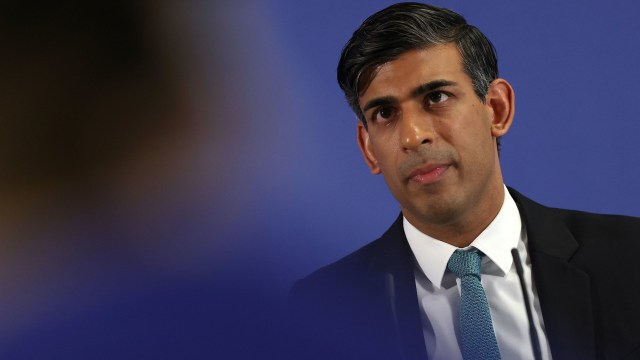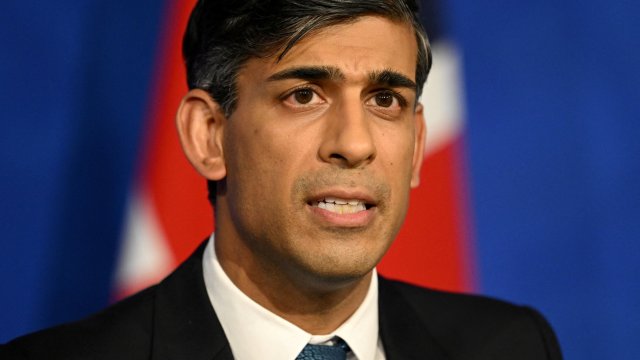Cutting taxes in this week’s autumn statement could keep mortgage rates high for longer, Rishi Sunak has been warned after he confirmed he plans to reduce the tax burden.
The Chancellor will confirm on Wednesday that he is cutting some taxes in a bid to show MPs and the public that the Government has a plan for the economy. In a speech, the Prime Minister said that “we can start to responsibly cut taxes” in a message designed to lay the ground for the autumn statement without surprising businesses or investors.
Jeremy Hunt concluded that it was safe to reduce taxes after being told by the official budget watchdog that fears over inflation, public debt and bond markets had all eased in recent weeks, according to Treasury insiders.
But in the autumn statement he is set to focus on business rather than personal taxation because cutting income tax or national insurance would risk driving inflation back up by directly increasing the amount of money available to consumers.
Paul Johnson of the Institute for Fiscal Studies warned that the improvement in the public finances had not justified a significant change in approach, telling i: “It seems extremely odd, I can’t think of any reason why headroom would have changed much in the last week. The messaging has shifted dramatically as if they are changing their policies day by day.”
He added that if the economy goes backwards before the spring Budget there is a “risk that they have to undo it in March”, raising taxes again to meet the Government’s fiscal rules.
Mr Johnson also pointed to the danger of interest rates staying higher if the Treasury stokes inflation, saying: “If it is a significant tax cut without any spending cuts, then you would think it would delay the Bank cutting rates.”
The cost of a new fixed-term mortgage has fallen as lenders battle to keep their share in a sinking market, but that could reverse if expectations of future interest rates go higher.
Mr Hunt has said for months that he is wary of cutting taxes because of the potential impact on inflation and borrowing, as well as the risk of destabilising the financial markets.
Initial forecasts from the Office for Budget Responsibility suggested he would have to raise billions of pounds to meet his fiscal targets.
But the latest forecasts are much more optimistic, Treasury sources have said, and markets for both Government bonds and mortgages have become less volatile.
An insider said: “What has fundamentally changed is that inflation has come down earlier than we thought, and borrowing is lower.”
In his speech on Monday, Mr Sunak said: “We can now can move on to the next phase of our economic plan and turn our attention to cutting taxes. We will do so seriously, we will do so responsibly, but that time is now here.”
He promised the Government would “move to the next phase of our plan” with five priorities – cutting debt, reducing taxes, boosting the energy supply, supporting businesses and improving education.
Rachel Reeves, Labour’s shadow Chancellor, hit out at the Tories’ economic management. She told a meeting of MPs: “After 13 years, the Conservatives have already failed on the economy.
Taxes are higher, debt is higher, mortgages are higher and prices are still rising in the shops. The economy is not working. Nothing that the Chancellor does this week will change this or distract from their appalling record.”

